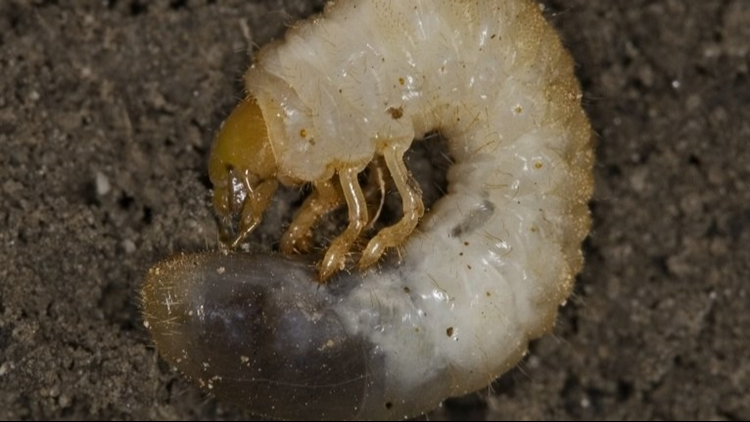ST PAUL, Minn. — If you're the type of person who is obsessed with a healthy green lawn, there's a new nemesis in Minnesota to keep an eye out for.
The Minnesota Department of Agriculture (MDA) says a resident of south Minneapolis tipped them off to the presence of the European chafer beetle, which can cause major damage to turf grass. That resident noticed large swarms of beetles in their yard at dusk and reported it to a University of Minnesota Extension entomologist, who suspected they were chafer beetles and reported them to MDA.
European chafer beetles had never been seen in Minnesota before, so MDA worked with federal agricultural officials to confirm the identity of the pest. Chafer beetles can now be found here as well as the northeastern U.S., Michigan and Wisconsin.
MDA says the grub of the European chafer can cause much more damage to turn than Japanese beetles because they spend more of the summer feeding on grass. However, adults don't eat at all, so they don't defoliate other plants like Japanese beetles are known to do. Home lawns, golf courses and turf growers could suffer significant impact if the European chafer beetle were to become entrenched in Minnesota.
Adult chafer beetles are about a half-inch long and tan in color, similar to “June bugs” commonly found in Minnesota in early summer but generally a bit smaller and lighter in color. They emerge from the soil between mid-June and early July, and are active on warm evenings for several hours just before and after sunset.
White chafer grubs can range from ¼-inch to 1-inch long with a dark brown head and noticeable legs.
With the initial discovery of this destructive pest in Minnesota, MDA wants to know where European chafer beetles may be in the state, and how much impact they are making on homeowners and businesses. If you spot a suspicious insect capture it, put it in a jar and then the freezer, and contact MDA via email or by calling 1-888-545-6684.



